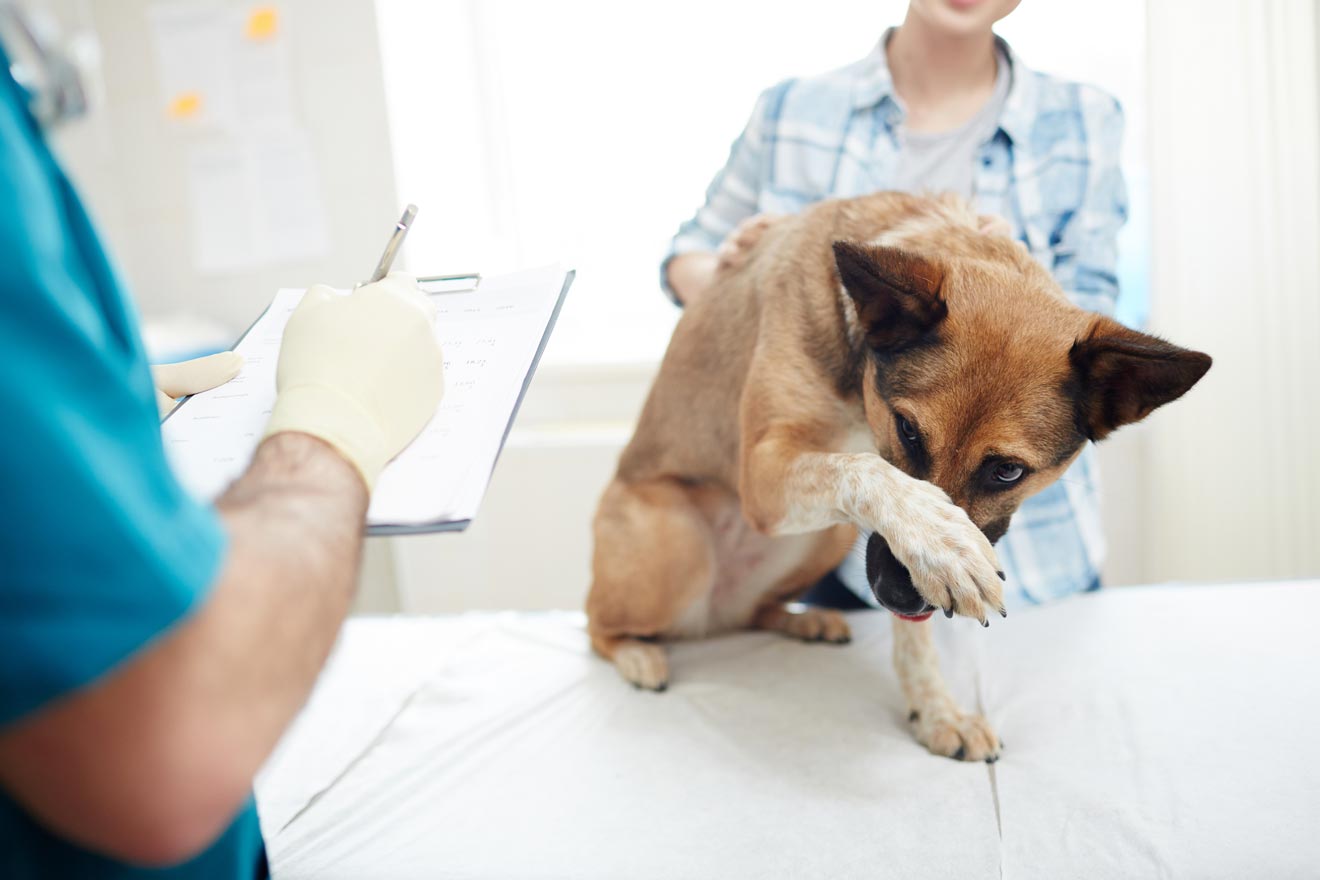Why Doesn't My Dog Behave at the Vet?

Many people are surprised when their dog seems to forget all his manners and ignores everything the owner tells him to do while at the veterinarian's office.
Sometimes, this issue can even keep people from going to the vet with their dogs, and that's not good. Dogs need to visit the vet for routine exams and preventive care.
Why Do Some Dogs Forget to Behave at the Vet?
Owners might notice their dog pulls on the leash, refuses to sit or lie down, jumps on people, barks, or hides at the vet's office. The behavior can be really upsetting to pet owners, and some people get embarrassed by it.
Dogs can quickly become overwhelmed at the vet clinic. It can be scary (even terrifying) or super exciting. Dogs that generally listen to their owners and behave well might suddenly have too much emotion going on to hear and obey. Unfortunately, some dogs may become so fearful at the vet that they could even bite at staff or the doctor.
How Can I Reduce My Dog's Vet Fear?
The best way to improve your dog's behavior at the vet is to reduce any fear or excitement he might experience there. You can do that by using some or all the following techniques:
- Remain calm yourself. If you begin to get anxious, it will tell your dog there is something to be nervous about, and he will follow your emotional lead.
- Do happy visits. Take your dog to the vet when nothing is going to be done to him. Of course, check with the staff first to make sure they aren't too busy. Staff members can give treats and attention without doing vaccines, exams, or nail trims. These are great visits at which to weigh your dog to keep tabs on that more often.
- Use positive reinforcement. Take treats to the vet with you. Ask your dog to sit and be calm and give a treat when he does. As much as possible, ignore unwanted behavior.
- Work with the staff to limit waiting room time. This might not always be possible, but if your dog is scared or over-excited, mention that when you make the appointment and ask for a slot at a slower time of day so your wait might be reduced. You can also keep your dog in the car and call to let the staff know you're there. They can then get you when they're ready for you, and you can take your dog directly into the exam room, bypassing the waiting room. The reason for doing that is the waiting room is an area that often induces fear in dogs. The smells and noises are excessive, and with people and animals going in and out, anxiety can run high.
Some dogs benefit from taking a short-acting oral sedative or anti-anxiety medicine before a vet visit. Never give anything without first talking to your vet, though, and be sure to consider all the possible side effects first.
You May Also Like These Articles:
Why Does My Dog Sometimes Dig at the Carpet
6 Bad Behaviors in Dogs That We Help Create
Disclaimer: This website is not intended to replace professional consultation, diagnosis, or treatment by a licensed veterinarian. If you require any veterinary related advice, contact your veterinarian promptly. Information at DogHealth.com is exclusively of a general reference nature. Do not disregard veterinary advice or delay treatment as a result of accessing information at this site. Just Answer is an external service not affiliated with DogHealth.com.
Notice: Ask-a-Vet is an affiliated service for those who wish to speak with a veterinary professional about their pet's specific condition. Initially, a bot will ask questions to determine the general nature of your concern. Then, you will be transferred to a human. There is a charge for the service if you choose to connect to a veterinarian. Ask-a-Vet is not manned by the staff or owners of DogHealth.com, and the advice given should not delay or replace a visit to your veterinarian.



